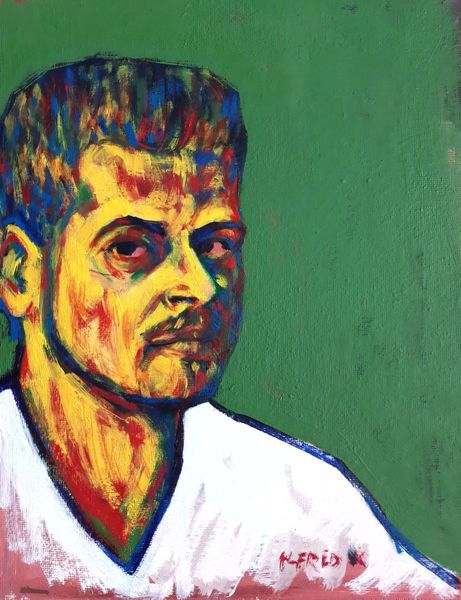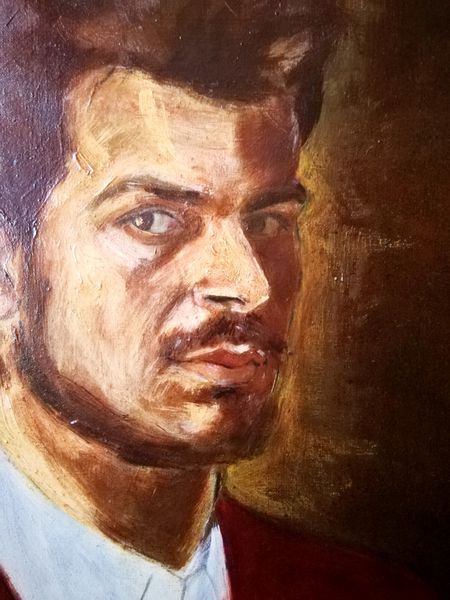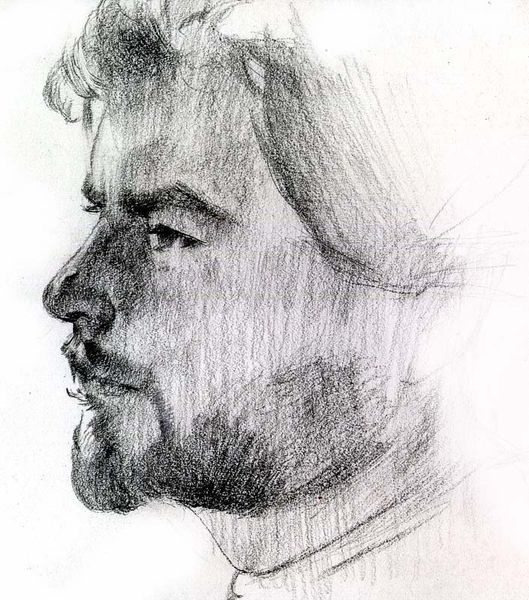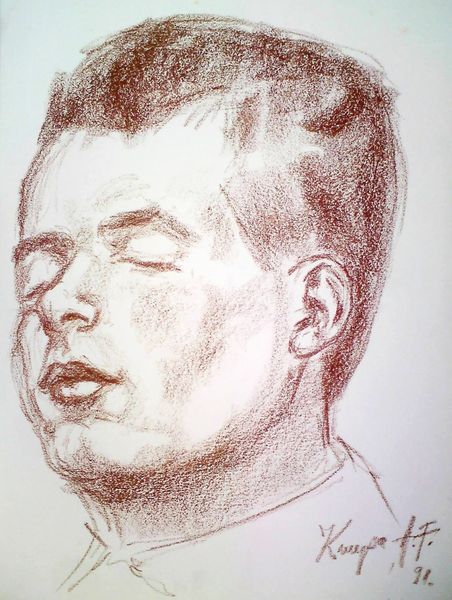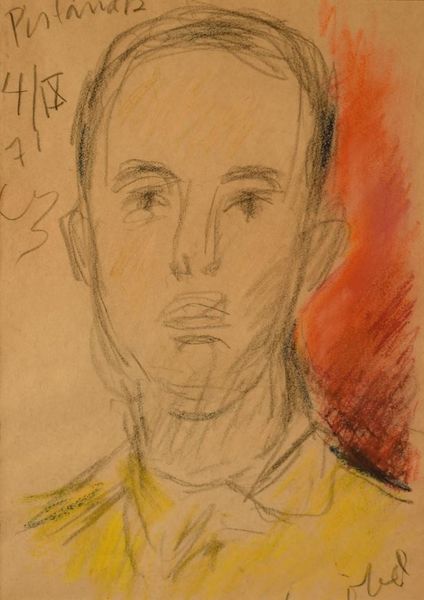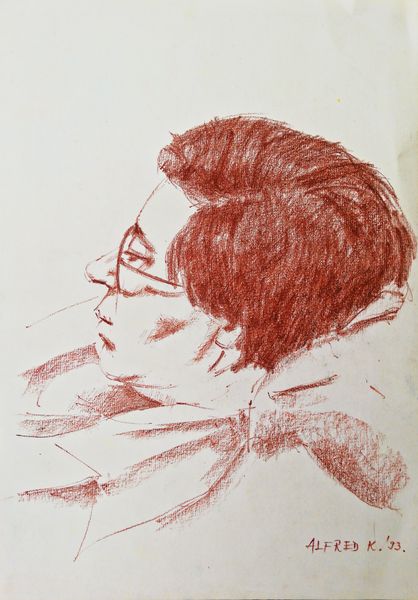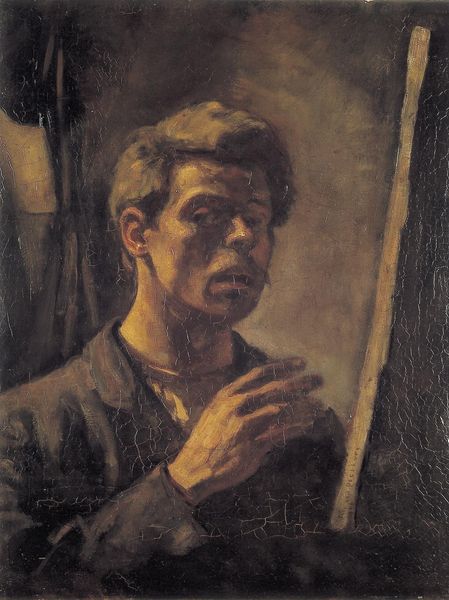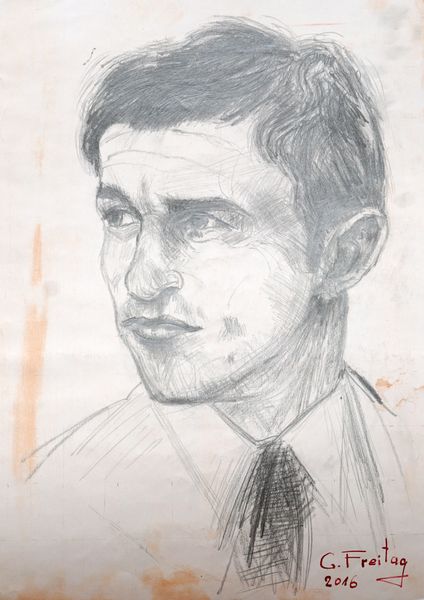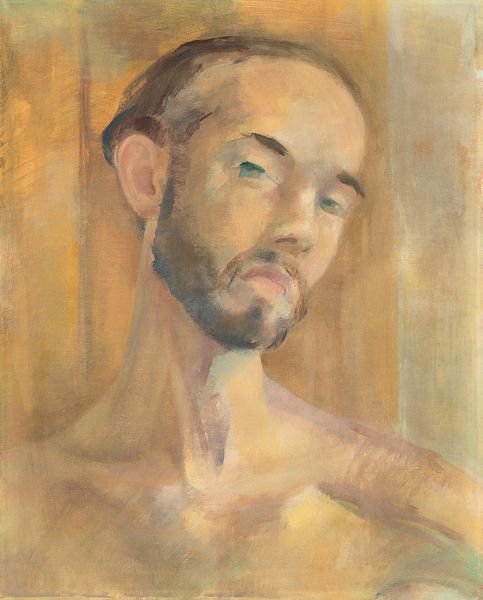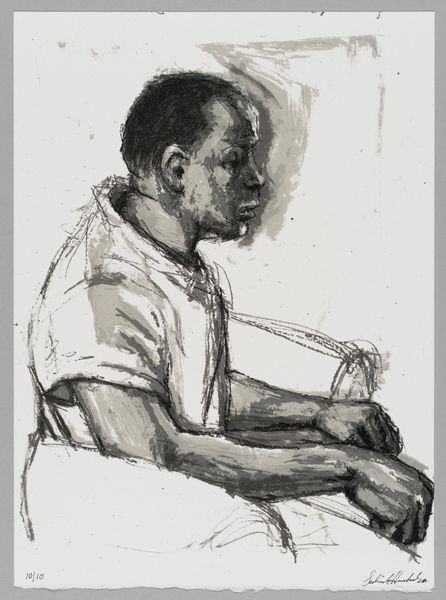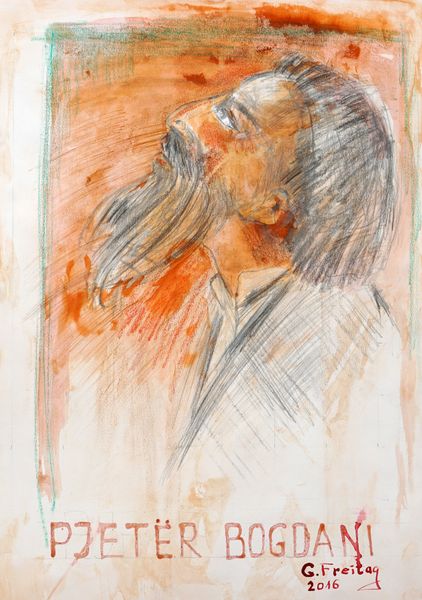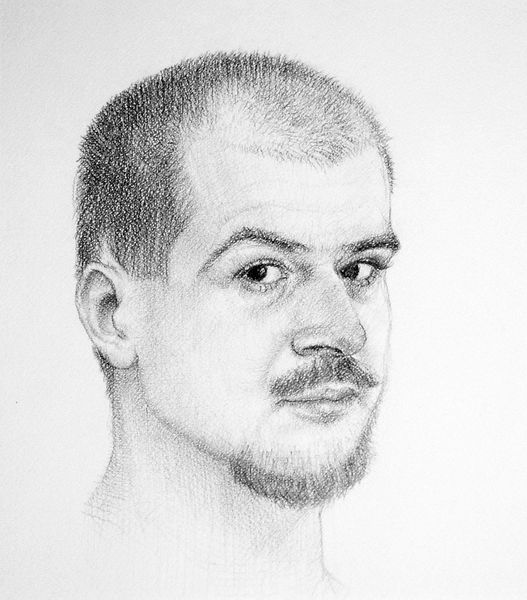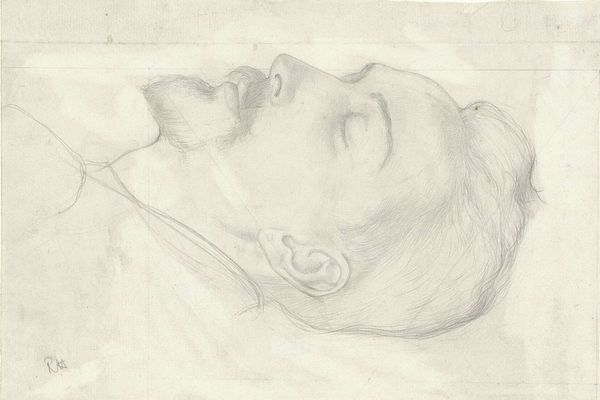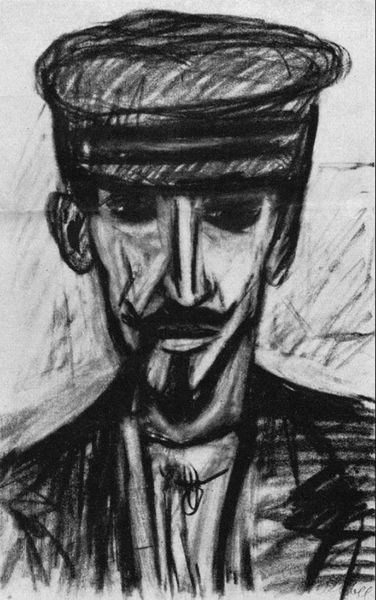
Profile self-portrait in watercolor painted using two mirrors (Painted the reflection of the reflection) 1993
0:00
0:00
watercolor
#
portrait
#
facial expression drawing
#
self-portrait
#
figuration
#
watercolor
#
portrait reference
#
portrait head and shoulder
#
intimism
#
animal drawing portrait
#
portrait drawing
#
facial study
#
facial portrait
#
portrait art
#
modernism
#
fine art portrait
#
digital portrait
Dimensions: 40 x 30 cm
Copyright: Creative Commons NonCommercial
Editor: Here we have Alfred Freddy Krupa’s 1993 watercolor, "Profile self-portrait in watercolor painted using two mirrors (Painted the reflection of the reflection)". I find it compelling how this work combines the artist's likeness with the added complexity of reflection. What does this self-portrait communicate to you? Curator: Well, seeing this piece from a contemporary lens, especially through the filters of identity and self-representation, it’s striking how Krupa engages with the doubled self. The mirrored image speaks to the multifaceted nature of identity. How much of ourselves is a reflection of how we think others perceive us? Do you see any commentary on constructed identity here? Editor: I guess it’s easy to read this through the lens of today’s digital age, but I wonder if it meant something different in 1993. Was Krupa perhaps exploring themes of alienation or fragmented identity ahead of their wide adoption? Curator: That’s insightful. In 1993, the internet was not yet ubiquitous, but the seeds of digital culture were being sown. Krupa’s choice to use two mirrors could symbolize the dawning awareness of the self being mediated, refracted, before such mediation became commonplace through social media. Consider also the act of painting—a very analogue process—intersecting with this doubling effect. Does this contrast evoke any specific feeling? Editor: It creates a sense of disconnect and distance. It feels almost voyeuristic, even though it is the artist portraying himself. It makes me wonder if he was considering ideas of the gaze. Curator: Precisely. The "reflection of the reflection" destabilizes the subject-object relationship. The male gaze is turned inward but through layers of mediation, hinting at the complexities and potential for self-objectification, even in a pre-digital world. Perhaps Krupa offers us a proto-critique of the image-obsessed culture that was on the horizon. Editor: It’s amazing how this seemingly simple self-portrait opens up into so many different angles. It’s certainly more than just an image of the artist's face! Curator: Indeed! This work reminds us that even in the most personal artistic explorations, broader social and theoretical undercurrents are often at play.
Comments
No comments
Be the first to comment and join the conversation on the ultimate creative platform.
